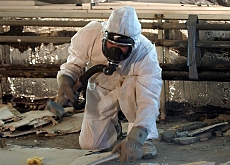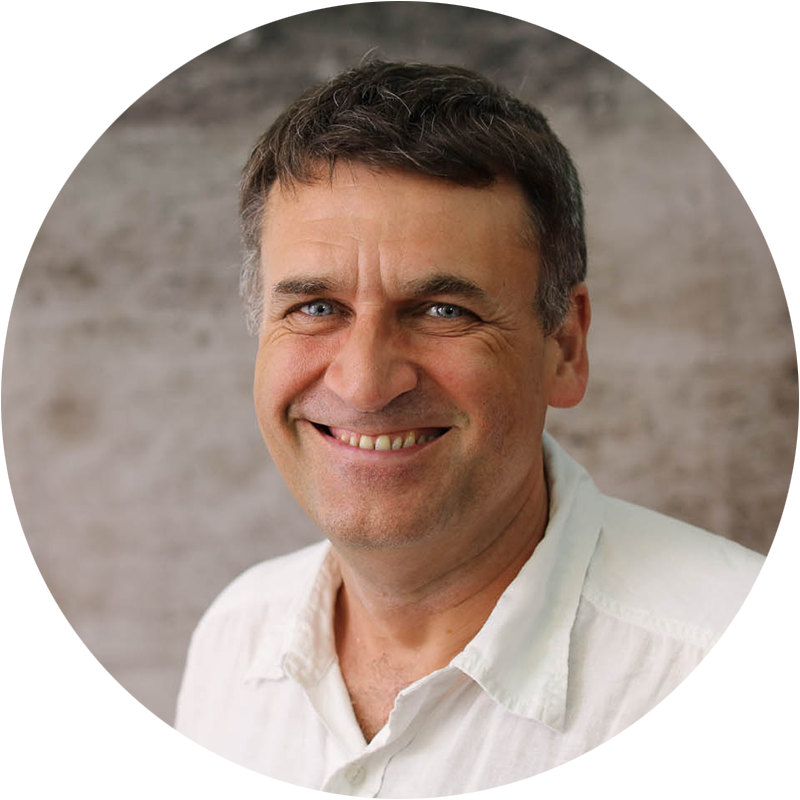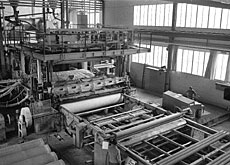Fund for Eternit asbestos victims set up

Cement company Eternit has set up a SFr1.25 million ($1 million) fund to help former employees in Switzerland suffering from asbestos-related illnesses.
The Asbestos Victims’ Association, which represents the employees and their relatives, has welcomed the news, but has questioned whether the funding will be enough.
Eternit, based in Niederurnen, canton Glarus, announced on Tuesday that it had set up a foundation in aid of asbestos victims. The company used to be a major Swiss and European producer of asbestos but pulled out of the business between 1980 and 1990.
The foundation will pay out benefits to affected people who work, or have worked, at Eternit’s Swiss plants at Niederurnen and Payerne, in the French-speaking part if the country.
It will also compensate surviving relatives, or people suffering from asbestos-related illnesses who can prove a link between their condition and the two Swiss factories, said the company.
Aid will be provided regardless of where the victim now lives but will only be given out in accordance to strict guidelines.
“Switzerland has a highly developed social security system. Suva [the Swiss national accident insurer] also recognises work-related illnesses caused by asbestos,” said Anders Holte, president of Eternit and chairman of the newly established foundation.
“But despite the quality of the services provided by Suva there are extremely serious cases of people who, as well as being affected by illness, are in financial difficulty,” he added.
Holte said that to date 70 of the company’s former employees have died from asbestos-related illnesses – a figure contested by the victims’ aid associations – but claimed that in recent decades the company “has acted correctly, on the basis of the facts known at the time”.
Reservations
Massimo Aliotta, legal advisor to the Asbestos Victims’ Association, said that the group welcomed the new fund.
He stressed that it would not just benefit employees. “I am thinking, for example, of the wives of workers who washed their husbands’ overalls and became ill as a result”.
Eternit recently paid SFr40,000 in compensation to Marcel Jann, a 53-year-old primary school teacher with a terminal illness. As a child Jann lived for many years near the Niederurnen plant. But he says the compensation is largely symbolic.
“In financial terms, the damage to my family as a result of my early death is around SFr1.5 million,” Jann told the German-linage magazine Beobachter.
But Aliotta says that some issues still remain unresolved.
“In the foundation’s articles it says that compensation will be paid only in strictly defined cases. What does “strictly defined” mean?” he said.
“In the last 50 years, many thousands of people have worked at Niederurnen and Payerne, 2,500 from the South of Italy alone. In theory, thousands of people would be able to seek help from the foundation”.
“Then we’ll have to see how much is paid out in each individual case,” said Aliotta.
The foundation is made up of SFr1.25 million. According to asbestos victims’ legal advisor, this “will never be sufficient to meet all the compensation claims”.
“This foundation has been set up at a time when increasing numbers of people are taking legal proceedings against the Eternit management. I would not describe it as a counterattack, but it is certainly a reaction to the present state of affairs,” said Aliotta.
Lawsuits
A number of lawsuits against the company or some of its principal former managers are going through the courts in Italy, France and Switzerland.
Eternit is alleged to have done little or nothing to protect its employees and the population from the dangers of asbestos, and of having failed to inform its workers of the risks.
In Italy, the Turin-based public prosecutor Raffaele Guariniello is due to conclude a major investigation into asbestos (2,000 claims for damages) by the end of the year.
In Switzerland, there are cases pending in the Glarus cantonal courts, and the pressure on Eternit is starting to mount.
Suva expects between 50 and 70 additional deaths from asbestos-related illnesses in the years ahead. Some experts have gone so far as to predict 3,000 deaths in the next 15 years.
swissinfo, Daniele Mariani
In Switzerland, by the end of 2004, Suva had recognised 848 cases of mesothelioma ( a form of cancer) and 58 cases of lung cancer as work-related illnesses caused by asbestos.
Suva is currently registering 70 new cases of mesothelioma each year, a figure which has increased steadily since the 1970s.
The term asbestos refers to a group of fibrous minerals present in certain types of rock. Because of its properties (resistance to heat, elasticity, good electric and thermal conductivity) it has been widely used since the 1930s for industrial and technological purposes.
Over the years it has become apparent that asbestos fibres, which easily become airborne, can seriously affect health.
Many illnesses do not manifest themselves until 40 years after initial exposure.
In 1975 Switzerland banned the use of flaked asbestos insulation materials; since 1990, a general ban has been in force.

In compliance with the JTI standards
More: SWI swissinfo.ch certified by the Journalism Trust Initiative












You can find an overview of ongoing debates with our journalists here . Please join us!
If you want to start a conversation about a topic raised in this article or want to report factual errors, email us at english@swissinfo.ch.